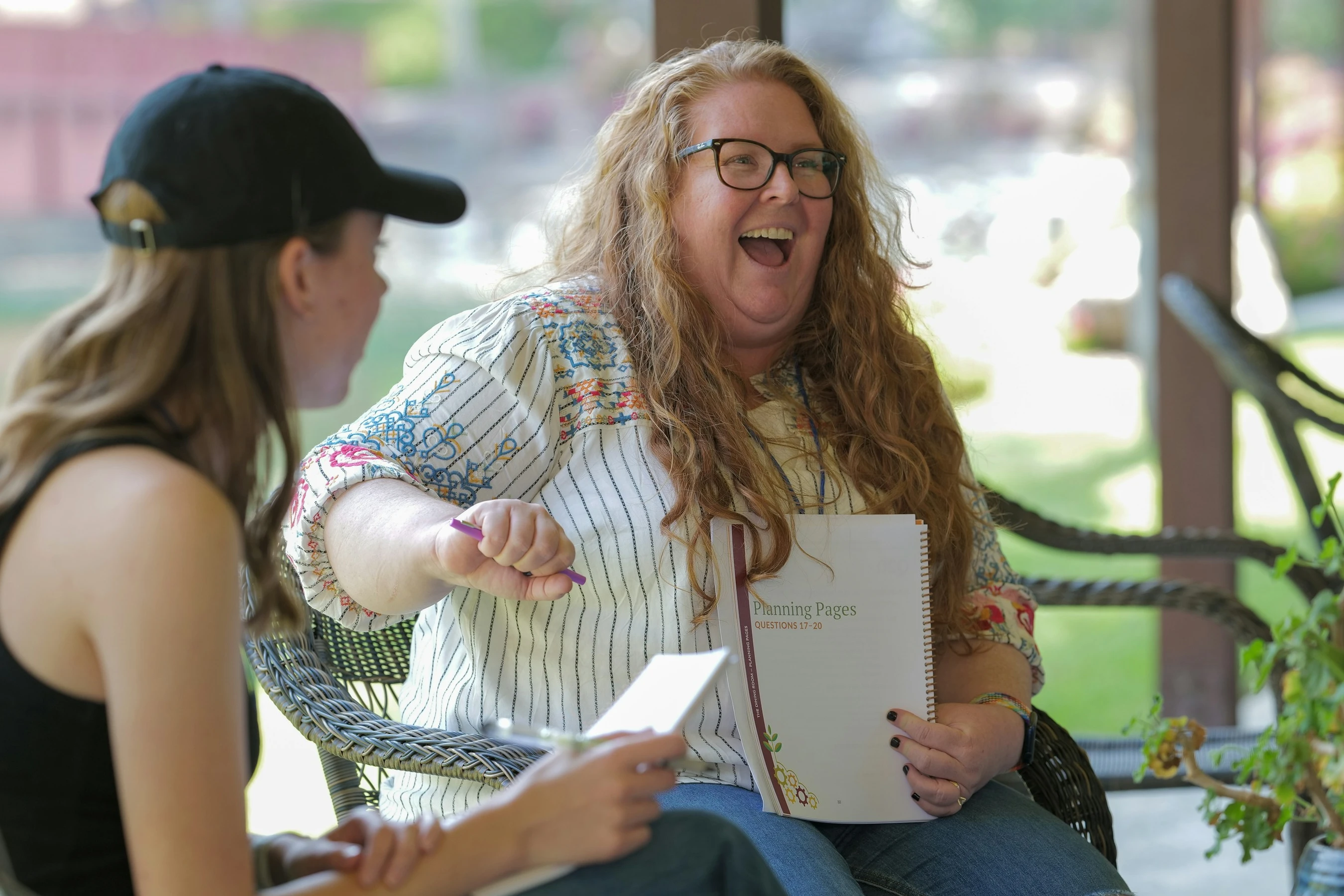The Word of God
The Bible is the inspired, infallible, and authoritative Word of God. It provides a foundation for life, faith, and conduct. (2 Timothy 3:15-16; Acts 2:42)
Read it, memorize it, and live it!
The Bible is the inspired, infallible, and authoritative Word of God. It provides a foundation for life, faith, and conduct. (2 Timothy 3:15-16; Acts 2:42)
Read it, memorize it, and live it!
Prayer is the profound but simple heartfelt communication between God and man. The Holy Spirit helps us pray to the Father through faith in Jesus Christ. (1 Thessalonians 5:17; Acts 2:42)
Pray First!
The Holy Spirit is the third Person of the Trinity who empowers, teaches, and helps disciples of Jesus Christ. We believe that the gifts of the Spirit are for today and encourage the baptism of the Holy Spirit. (John 16:13; Acts 1:8; 4:31)
Be filled with the Spirit!
Evangelism is the first step of discipleship. Through evangelism the Gospel is shared, and people are introduced to the Lord Jesus Christ. (Matthew 28:19-20; Acts 1:8; 2:41).
Tell everyone about Jesus!
Fellowship is community and communion with God and other believers. (Acts 2:42-47; 1 John 1:3-4)
Don’t Walk alone!
Generosity is sharing life, resources, time, and talents with others in the love of Jesus. (Acts 2:42-47; 1 Timothy 6:18).
Live with an open hand!
The commitment to live and serve to the best of one’s ability. Excellence calls us to grow and develop the gifts God has given us to serve Him and others. (Act 2:42; Colossians 3:23; 2 Timothy 2:15).
Do it well!

Small Groups at NLC are intended to be discipleship groups, which will help us grow as disciples and make disciples by equipping, empowering, encouraging, and challenging one another to grow in love towards maturity through the Holy Spirit in the Word, Prayer, Fellowship, Evangelism, Generosity, and Excellence.
Each group will consist of 2-6 people who will come together to seek God's presence and activate the work of the Holy Spirit in their lives. Once a group reaches six members or more, we encourage it to multiply into two separate groups to foster growth and continue the disciple-making process.

Small Group Facilitators are a dedicated group of men and women called to support and guide believers in their journey of discipleship, helping them to become authentic followers and imitators of Jesus Christ. They also guide individuals in knowing and loving God through His Word, leading by example with the help of the Holy Spirit.
As facilitators, our shared mission is to reflect Christ to everyone walks through the doors of NewLife Church. Upholding values like transparency, integrity, excellence, and accountability is essential as our church and ministry continue to grow. By joining this team, you are dedicating yourself to these responsibilities, playing a crucial role in achieving our vision and mission to be and make disciples of Jesus Christ.
Spend time with the Lord in prayer and in the Word daily to ensure growth and consistency.
Regularly attend Sunday services and major churchwide events, making yourself available to the church community. If you need to be absent, communicate this in advance via text, email, or phone call.
“Be diligent to present yourself approved to God, a worker who does not need to be ashamed, rightly dividing the word of truth”. (2 Timothy 2:15)
Commit to live and serve to the best of your ability.
Here at NLC,
We gather together in worship (Hebrews 10:25).
We grow together. We study the Bible, pray, & encourage one another in small groups.
We go together. We share Jesus with others and serve people with our gifts and talents.
This is our Discipleship Process. We are asking that you attend service on Sunday, join a small group to be discipled, and share Jesus with others outside of these walls while serving here with your gifts and talents.
Do not leave room in your relationships and conversation for gossip, accusations, or misinterpretation. Be modest, moderate, and temperate in all things.
Ensure that our Core Values are present during every Small Group meeting.
Your primary role is to guide discussion, foster a safe and welcoming environment, and encourage spiritual growth among group members. You are not expected to have all the answers but to help others engage with Scripture and each other.
No. Your role is to facilitate conversation and growth, not to teach or preach. A heart for people and a willingness to prepare are what matter most.
What do I do if someone dominates the conversation?
It’s okay to say, “That’s a great question—let me look into it and get back to you.” You can follow up with your small group coach or pastor for support.
Listen with compassion. You don’t have to solve it—just be present. Maintain confidentiality unless it involves harm to themselves or others, in which case inform your church leader or pastor.
Create opportunities for everyone to speak. Try asking, “Sarah, would you like to share your thoughts?” or use small breakout discussions.
Reach out with a text, call, or email to check in and express that they’re missed. Let them know the group cares about them.
Absolutely! Empower others to bring snacks, host, lead prayer, or handle communication. Shared responsibility builds ownership and community.
Reach out to your small group coach, ministry leader, or pastor. You’re not alone—we’re here to support you.
Make time to read Scripture and pray outside of group prep. Surround yourself with community, stay in the Word, and pursue growth through worship, sermons, and your own spiritual disciplines.
Take it seriously and talk to your coach or pastor. It's okay to ask for a break or support. Your well-being is more important than your role. Leaders need care too.
Model vulnerability, spiritual hunger, and consistency. Share how you're applying the Word, pray openly, and invite accountability and next steps (e.g., serving, daily devotions, etc.).
You don’t have to be perfect to lead, but you should not carry burdens alone. Reach out to someone you trust—your leader, a pastor, or a mentor—for support and prayer.
Encourage regular Bible reading, suggest resources (devotionals, reading plans), and ask open-ended questions about the text. It’s okay to explore Scripture together rather than have all the answers.